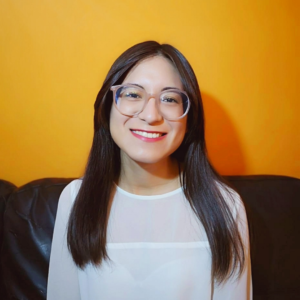During my first years in college, I learned what it meant to do research on my own. In the beginning, it was a bit frustrating. I didn’t know how to start. I had a lot of unordered ideas. And the constant self-sabotage that prevented me from moving forward was part of this process that later turned into a more introspective one. I looked for ways to find myself again and little by little I managed to consolidate a balance between my advances and setbacks. Over time, I got used to learning on my own. Solitude became another friend, but I felt that something was missing.
In 2017, I continued going through this process when I was studying Anthropology. I loved going to the library, reading, organizing, writing, all by myself. However, this all changed starting in 2018 when I decided to transfer to major in Development Communication. I remember that my first semesters were difficult: all my academic papers were group assignments even the research ones. I didn’t understand why I had such a hard time accepting it. I will be very honest. At first, I didn’t like the idea of sharing knowledge until I realized that “learning alone” had become a way of satisfying my need for approval in the face of the competition that existed in my environment. It was my friends who eventually helped me to get out of that learning scheme.
Thus, I gradually came to understand what it means to do research in a team. It is a very different process. It is not just the typical “well, we divide: this you and this me”. It also implies initiating never-ending talks and constant reflections, which can sometimes turn into “conflicts”, but it is precisely these “break” points where I believe they can be the opportunity to strengthen not only knowledge, but also bonds.
In these weeks of research, Romina and I have learned to accompany each other in our own progress and setbacks. This is how I was able to redefine team research as a process in company where we are pushed to accept our own learning rhythms, to support each other in the face of the personal and professional obstacles we each have and, above all, to let each other help.
Researchers are often seen as cold, rational beings who only seek results to satisfy our academic ego. However, we forget that many of us start from our own subjectivities and emotions. Competition will always be present in academia, but I also consider that the knowledge I have managed to build is thanks to collaboration and teamwork. Finally, it is more satisfying to achieve something together than to achieve something to receive the approval of others.




